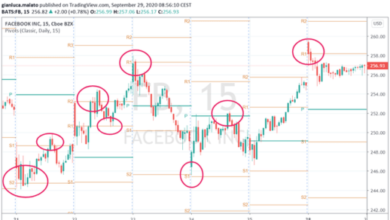Where is the Real Today: Exploring the Current State of Reality
In a world characterized by rapid technological advancements and ever-evolving perspectives, the concept of reality has taken on a dynamic and multi-dimensional form. From virtual reality to augmented reality, and even the philosophical dimensions of our existence, the question “where is the real today” sparks curiosity and contemplation. This article delves into the various facets of reality, both tangible and intangible, to understand its modern-day implications.
The notion of reality has drastically evolved over time, significantly impacted by technological advancements and philosophical inquiries. As we plunge into this digitally augmented era, we find ourselves at a crossroads where the tangible and intangible coalesce, raising profound questions about existence, perception, and the nature of reality itself.
Technological Influences on Reality
In today’s age, technology plays an indispensable role in shaping our perceptions of reality. Virtual reality (VR) and augmented reality (AR) have transformed the way we interact with information and entertainment.
Immersive Entertainment and Gaming
Virtual reality has revolutionized the gaming and entertainment industry. With VR headsets, users can step into alternate dimensions, becoming active participants in their favorite games and movies.
Training and Skill Enhancement
Augmented reality, on the other hand, enhances our real-world experiences by overlaying digital information onto our surroundings. This technology finds applications in fields such as medicine and engineering, where professionals can receive real-time guidance and training.
The Philosophical Notion of Reality
Beyond technology, reality’s definition remains a subject of philosophical inquiry. Philosophers and thinkers have long contemplated the nature of reality and its connection to human existence.
Phenomenology and Perception
Phenomenology suggests that reality is directly tied to individual perceptions. Each person experiences the world uniquely, shaping their understanding of reality.
The Simulation Hypothesis
The Simulation Hypothesis proposes that our reality might be a computer-generated simulation. This idea raises profound questions about the nature of consciousness and the fabric of existence.
Virtual Reality: A New Dimension of Experience
Virtual reality offers an unprecedented level of immersion, blurring the boundaries between the physical and digital realms.
Immersive Entertainment and Gaming
The gaming industry has embraced VR technology, offering gamers an unparalleled level of engagement. Through VR, players don’t just control characters – they become them.
Training and Skill Enhancement
Beyond entertainment, VR finds utility in training scenarios. From flight simulations for pilots to medical procedures for doctors, VR provides a safe space for skill development.
Augmented Reality: Bridging the Digital and Physical
Augmented reality enriches our perception of reality by integrating digital elements into our physical environment.
Applications in Industry and Commerce
In the business world, AR is transforming how companies engage with customers. From virtual try-ons in fashion to interactive product manuals, AR enhances user experience.
Educational Applications
AR has the potential to revolutionize education. Students can visualize complex concepts, historical events, and scientific phenomena, making learning more engaging.
The Human Experience: Perceptions and Realities
Individual realities are shaped not only by external factors but also by our cultural and social contexts.
Subjectivity and Individual Realities
Reality is subjective, varying from person to person based on their experiences, beliefs, and emotions.
Cultural and Social Construction of Reality
Cultural norms and societal expectations play a significant role in shaping our understanding of reality. What is deemed “real” can differ greatly across cultures.
Reality in the Digital Age: Navigating the Information Landscape
The digital age has brought about a new dimension of reality – one that exists in the virtual realm.
The Influence of Social Media
Social media platforms present curated versions of reality. Users often present idealized versions of themselves, leading to a skewed perception of reality.
Digital Authenticity and Misinformation
The internet is a breeding ground for misinformation. Distinguishing between authentic information and falsehoods is becoming increasingly challenging.
Existential Philosophies: Reality as a Subjective Truth
Existential philosophies delve into the nature of human existence and the subjective experience of reality.
Phenomenology and Perception
Phenomenological thinkers argue that reality is shaped by how we perceive and interpret the world.
The Simulation Hypothesis
A modern take on reality, the Simulation Hypothesis suggests that our perceived reality might be a complex simulation.
The Metaverse: Blurring Boundaries Between Realities
The concept of the metaverse introduces a new layer of reality, where digital and physical experiences converge.
Creating Parallel Universes
In the metaverse, users can inhabit digital avatars and interact with others in virtual environments, essentially living dual lives.
Societal and Ethical Considerations
As the metaverse gains traction, questions of digital identity, data privacy, and ethical usage come to the forefront.
Reality Check: Finding Balance Amidst the Realms
As we navigate a world filled with varying degrees of reality, finding a sense of balance is crucial for our well-being.
Digital Detox and Mindfulness
Taking breaks from digital environments and practicing mindfulness can help us reconnect with the tangible world.
Embracing Change and Ambiguity
Flexibility in adapting to changing realities and embracing ambiguity can lead to a more enriched life experience.
The Future of Reality: Predictions and Speculations
The trajectory of reality is constantly evolving, influenced by technology, philosophy, and human imagination.
Evolution of Virtual and Augmented Realities
Advancements in VR and AR technology will likely lead to even more immersive experiences, transforming how we interact with the world.
Redefining Human Identity and Interaction
The blurring of real and digital identities will challenge traditional notions of self, leading to new forms of human interaction and connection.
Conclusion
In a world where reality is no longer confined to the tangible realm, we find ourselves at an intersection of possibilities. Technological leaps and philosophical inquiries have broadened the scope of reality, inviting us to question our perceptions and embrace the unknown. As we stand on the threshold of the metaverse and navigate a landscape of shifting truths, the question remains: where is the real today?





